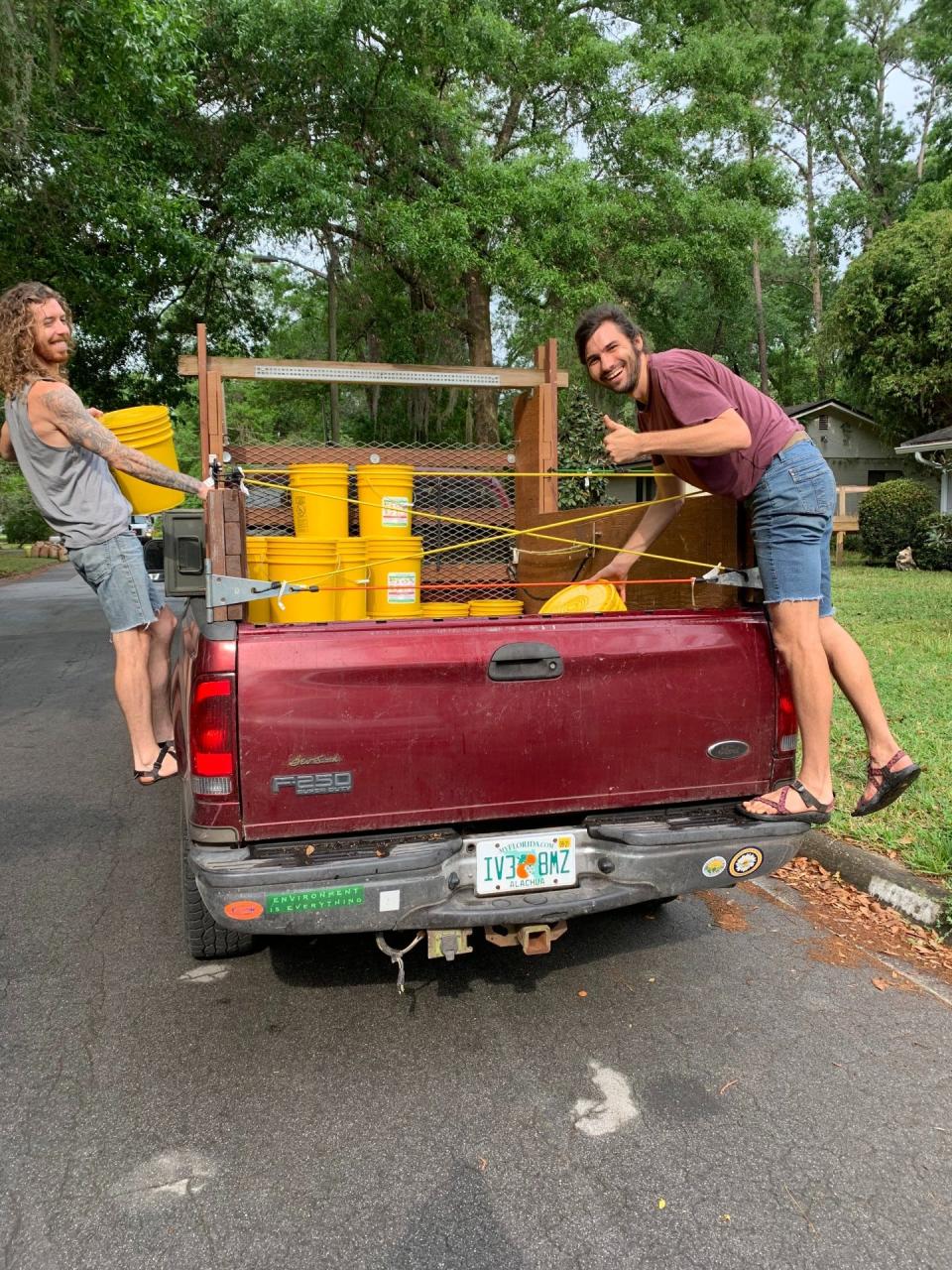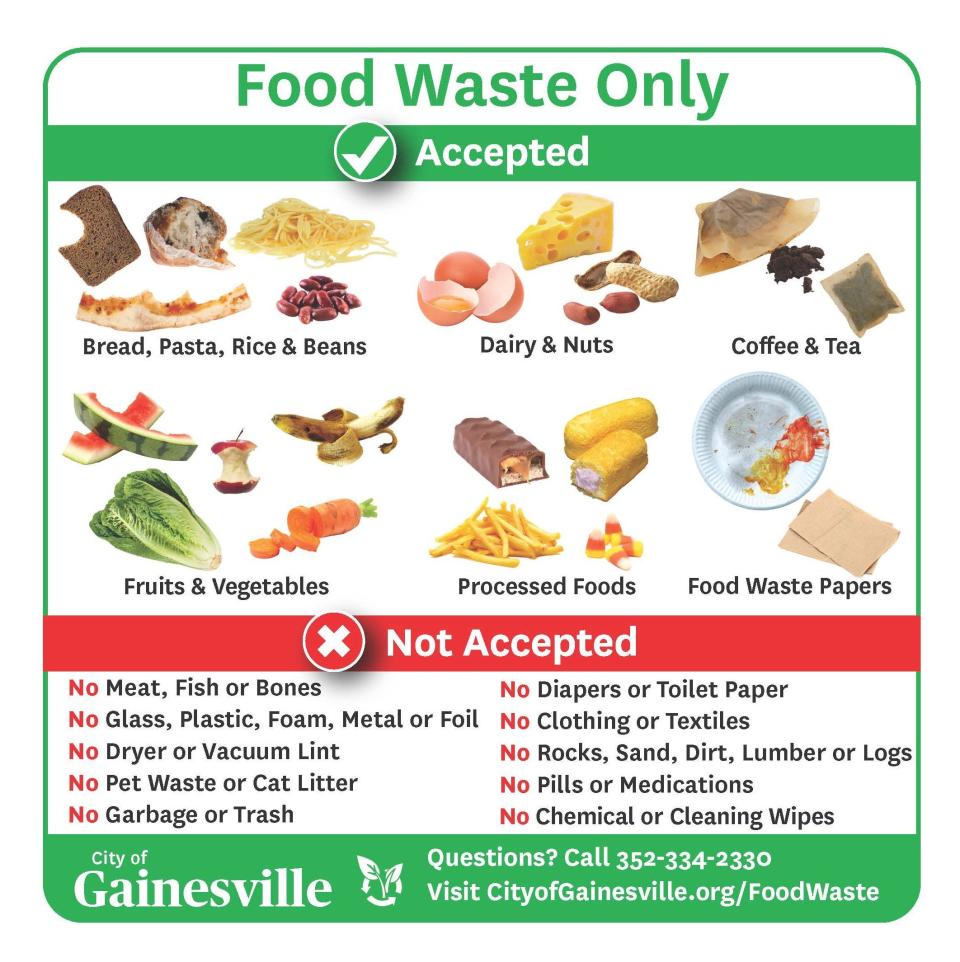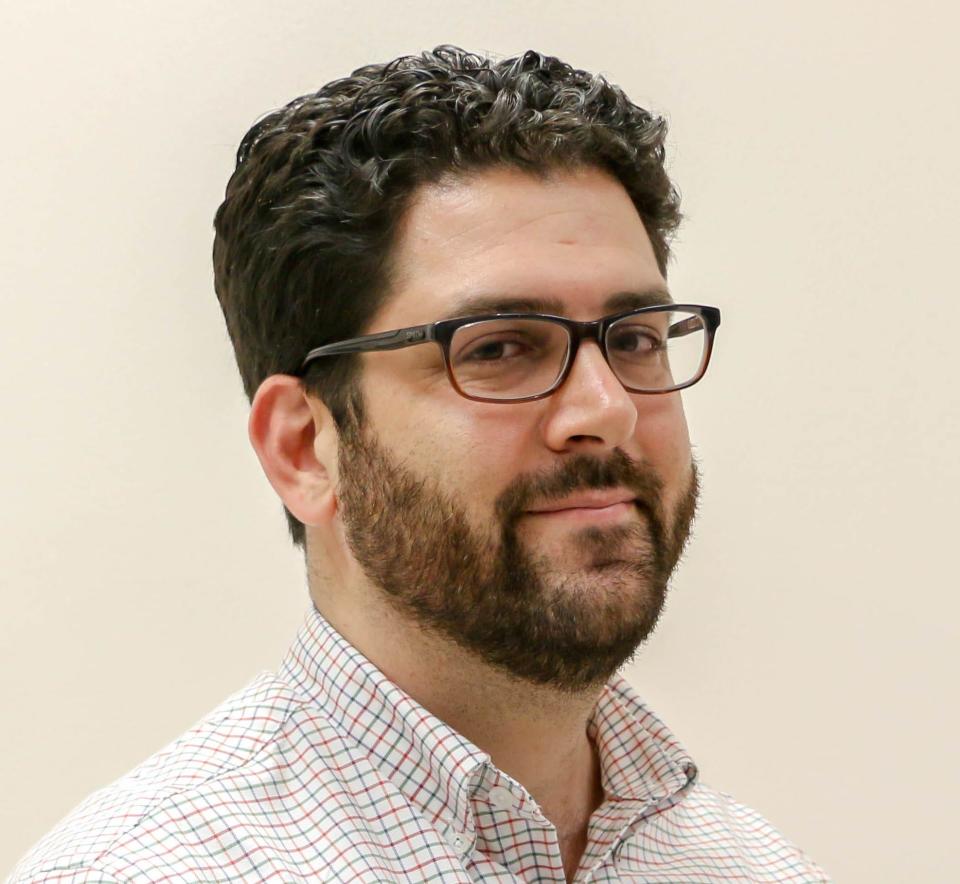Gainesville's composting program diverts food waste from landfill, should be expanded
The 2008 Pixar movie “WALL-E” often always comes to my mind when thinking about all the trash that our society produces.
The movie is set during a future time when humans have allowed Earth to become a massive garbage dump and abandoned the planet, cruising space while robots clean up the mess they left behind.
The last couple years have me worrying that such a future might not be so far-fetched. Home deliveries from Amazon and other retailers have skyrocketed during the COVID-19 pandemic, leading to more wasteful purchases and the packaging that comes along with them.
But here in Gainesville, we have made strides in recent years in reducing and recycling the waste produced by local households and businesses. The city’s ban on plastic straws is more symbolic than meaningful, but city commissioners have taken and are considering more significant steps to move Gainesville toward a zero-waste goal by 2040.
More from Nathan Crabbe:
Don't talk East Gainesville plans to death: Make sports complex, other ideas happen
What do you think about Gainesville's downtown development plan?
Focus on Florida's real problems rather than the latest outrage
Perhaps the most promising effort is a pilot composing program. Since April 2021, about 200 local homes have put much of their food waste in yellow buckets that are collected weekly by Beaten Path Compost, a local business that sells compost to area growers.
My neighborhood was fortunate to be among those selected to participate in the program, so my family enthusiastically signed on. The experience has shown us that keeping food scraps out of the trash is an easy way to reduce a sizeable amount of the garbage we produce.
“It can be quite substantial and is also some of the heaviest waste,” said Tom Strickland, who oversees the program as the city’s recycling coordinator.

Food waste is the single-largest component in U.S. landfills, comprising 22% of municipal solid waste, the U.S. Environmental Protection Agency reports. Food buried in dumps decomposes under oxygen-depleted conditions that cause the release of methane, a greenhouse gas at least 20 times more potent than carbon dioxide in warming our planet.
Composting lets food decompose in a more environmentally friendly way while producing a nutrient-rich material that nourishes plants. Yet very little of the food waste being generated in the U.S. gets composted — just 4.1%, according to the EPA.
Gainesville’s composting program collects food waste such as uneaten produce, bread, cheese and processed foods, and even paper products, but not meat. More than 60,000 pounds of food waste have been collected and composted since the program started in April 2021, according to the city.

“We know this program works well,” Strickland said, proudly noting that less than 1% of the material collected has fallen outside the accepted categories.
Expanding the categories to include meat is among changes being considered. So are expanding the neighborhoods in the program, adding apartment complexes and businesses to the mix, and possibly having the residential program available citywide by 2025.
The expansion of composting is among several waste-reduction efforts being considered by the City Commission at its meeting today. Here’s hoping commissioners continue moving Gainesville toward its zero-waste goal — and that other cities take similar steps.

“WALL-E” was an entertaining movie, but we need to avoid a future in which we’ve trashed the planet so badly that we have to abandon it.
Nathan Crabbe is The Sun's opinion and engagement editor. Follow him on social media at twitter.com/nathancrabbe and facebook.com/nathancrabbe.
Join the conversation
Send a letter to the editor (up to 200 words) to letters@gainesville.com. Letters must include the writer's full name and city of residence. Additional guidelines for submitting letters and longer guest columns can be found at bit.ly/sunopinionguidelines.
Journalism matters. Your support matters.
Get a digital subscription to the Gainesville Sun. Includes must-see content on Gainesville.com and Gatorsports.com, breaking news and updates on all your devices, and access to the eEdition. Visit www.gainesville.com/subscribenow to sign up.
This article originally appeared on The Gainesville Sun: Nathan Crabbe: Gainesville composting diverts food waste from landfill

